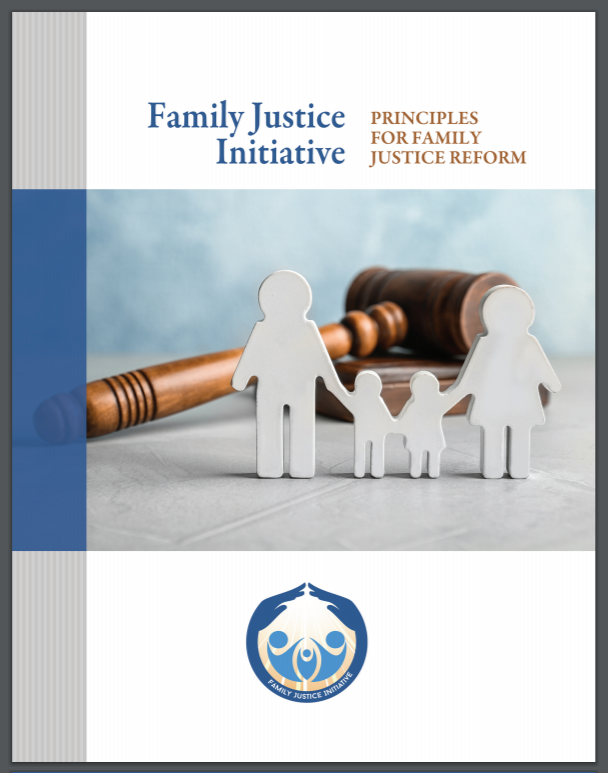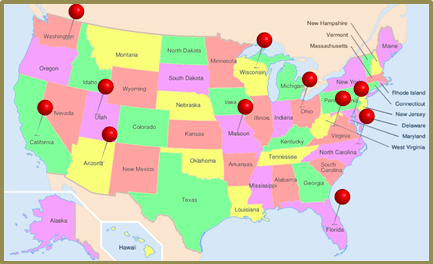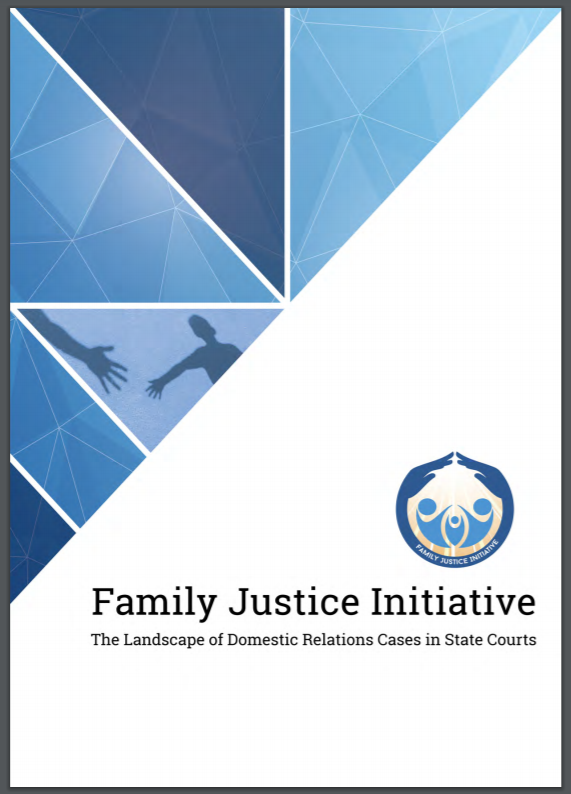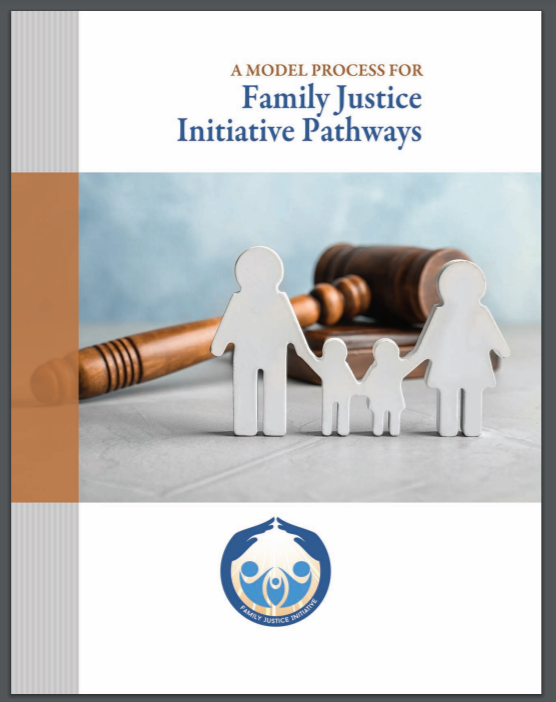| The Cady Initiative | | | Cady Initiative principles | | | Cady Initiative demonstration sites | | | Cady Initiative library |
The evolving nature of family dynamics requires courts to respond with innovative models to help resolve family matters and improve access and quality of justice. Courts across the country deal with emotional and often legally and factually challenging cases that can lead to high turnover of court professional staff and judges.
Accurate identification of what cases need helps the court refer parties to targeted services and make the best use of judicial time and resources on cases that need it the most. The Cady Initiative also identifies automated processes, assisted forms and alternative legal representation models that equip families with the understanding to navigate the legal process. By providing families the services they need so they sped less money on litigation and less time in court, parties will feel more satisfied with the justice system when it serves them more efficiently.
Project phases
Phase 1 entailed an assessment of the current landscape and best practices in domestic relations cases, and the project released the first-of-its-kind study, the FJI Landscape Report in October 2018. The study looked at 11 jurisdictions across the nation.
| Landscape of Domestic Relations Report |
Phase 2 had the FJI Advisory Committee developing bold recommendations for family justice reform – contained in the Family Justice Initiative: Principles for Family Justice Reform and the supplemental A Model Process for Family Justice Initiative Pathways.
 Principles for Family Justice Reform Principles for Family Justice Reform |
Phase 3 entailed the implementation of the Principles in four pilot courts across the country: Miami-Dade County, Forida; King County, Washington; Pima County, Arizona; and Cuyahoga County, Ohio.
Background
 In Fall 2017, the National Center for State Courts (NCSC) with support from the State Justice Institute (SJI) launched the Family Justice Initiative (FJI) Project to evaluate and improve the way state courts handle domestic relations cases. The Institute for the Advancement of the American Legal System (IAALS) and the National Council of Juvenile and Family Court Judges (NCJFCJ) supported this work alongside NCSC. The FJI Project is modeled on that of the CCJ Civil Justice Improvements Project which resulted in the recommendations for civil justice reform contained in A Call to Action: Achieving Civil Justice for All.
In Fall 2017, the National Center for State Courts (NCSC) with support from the State Justice Institute (SJI) launched the Family Justice Initiative (FJI) Project to evaluate and improve the way state courts handle domestic relations cases. The Institute for the Advancement of the American Legal System (IAALS) and the National Council of Juvenile and Family Court Judges (NCJFCJ) supported this work alongside NCSC. The FJI Project is modeled on that of the CCJ Civil Justice Improvements Project which resulted in the recommendations for civil justice reform contained in A Call to Action: Achieving Civil Justice for All.
At the CCJ/COSCA 2020 Annual Meeting, the Conference of Chief Justices and the Conference of State Court Administrators endorsed and encouraged their members to implement the recommendations: CCJ/COSCA Resolution 4: In Support of a Call to Action to Redesign Justice Processes for Families. In February 2021, a vote to rename the Initiative after Chief Justice Cady occurred at a meeting of the Conference of Chief Justices (CCJ) and the Conference of State Court Administrators (COSCA). The chief justices and the state court administrators noted that FJI was formed under his vision and leadership and that his vision represented a fundamental shift in the management of family cases -- one centered on the needs of the families and children under the courts’ supervision.

